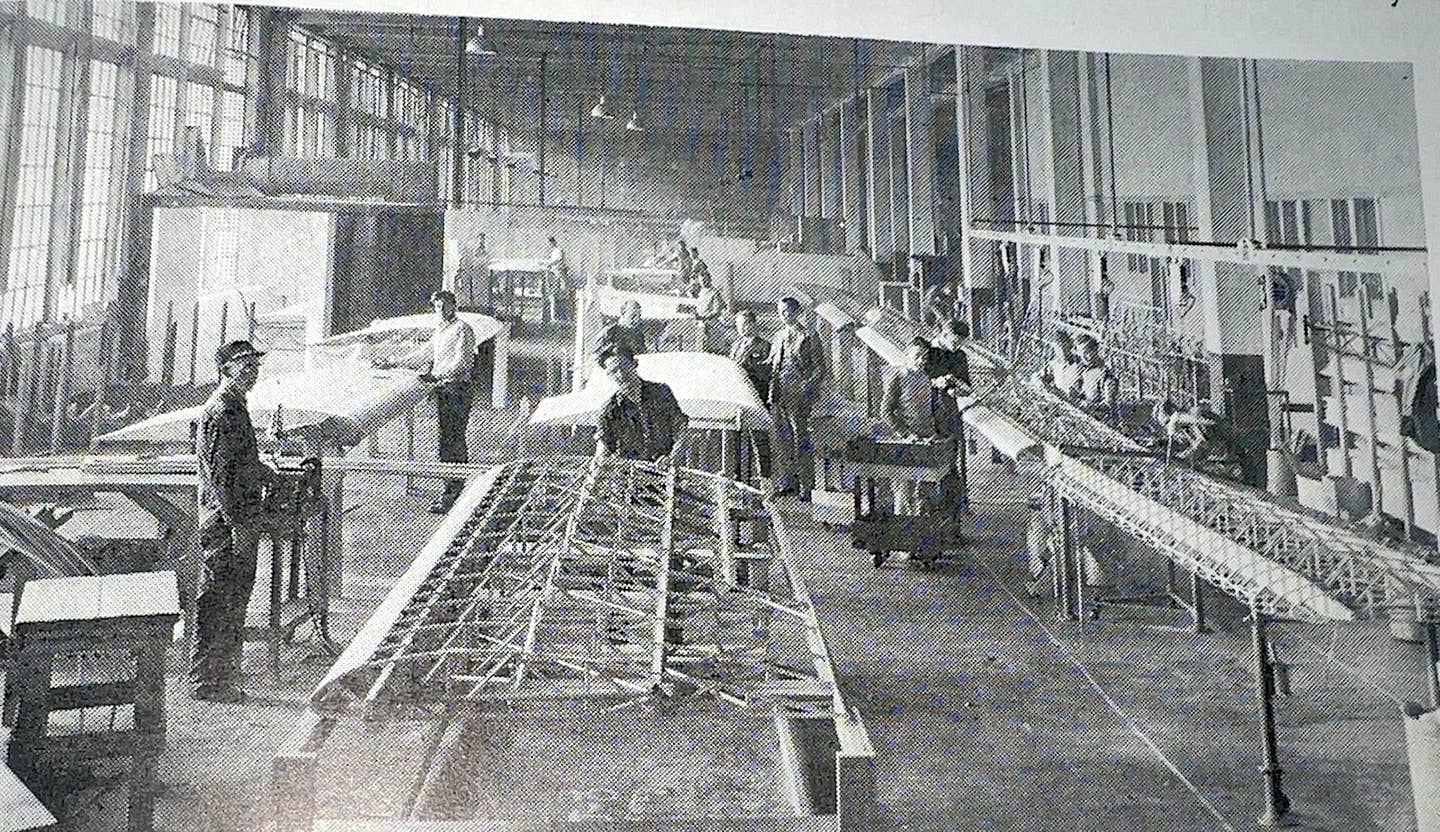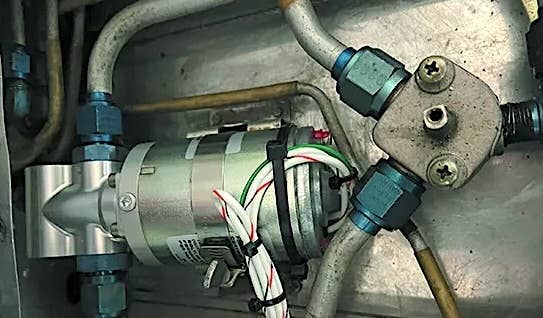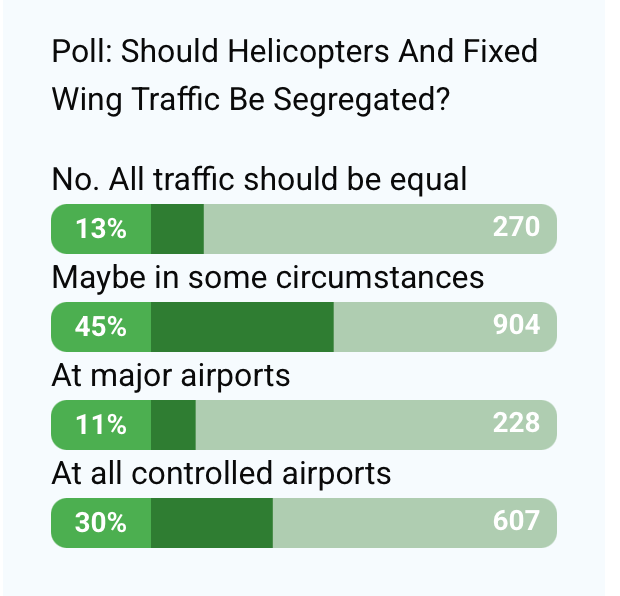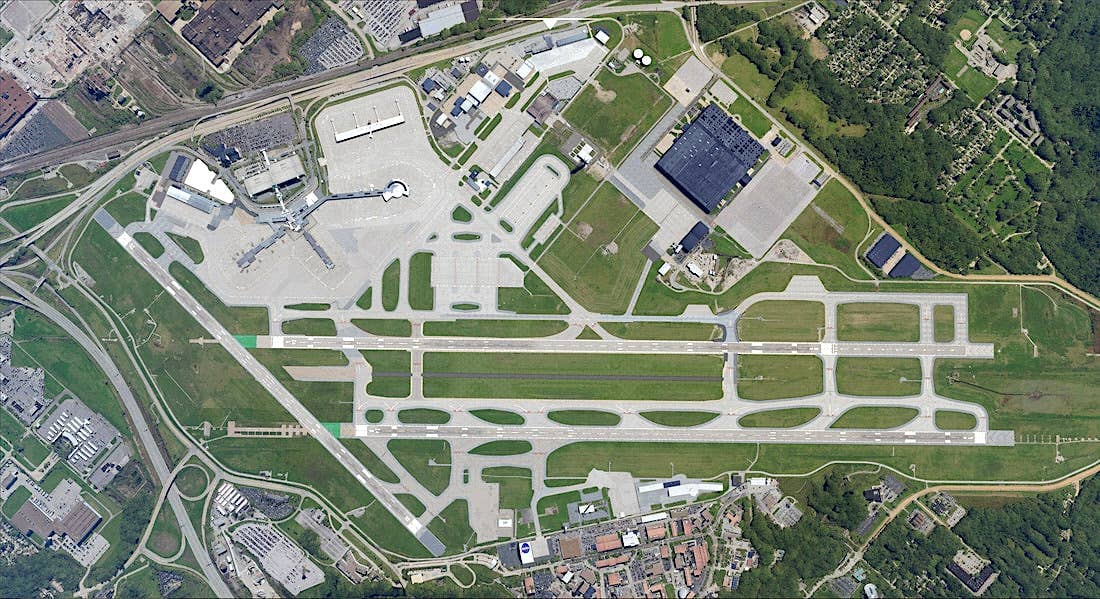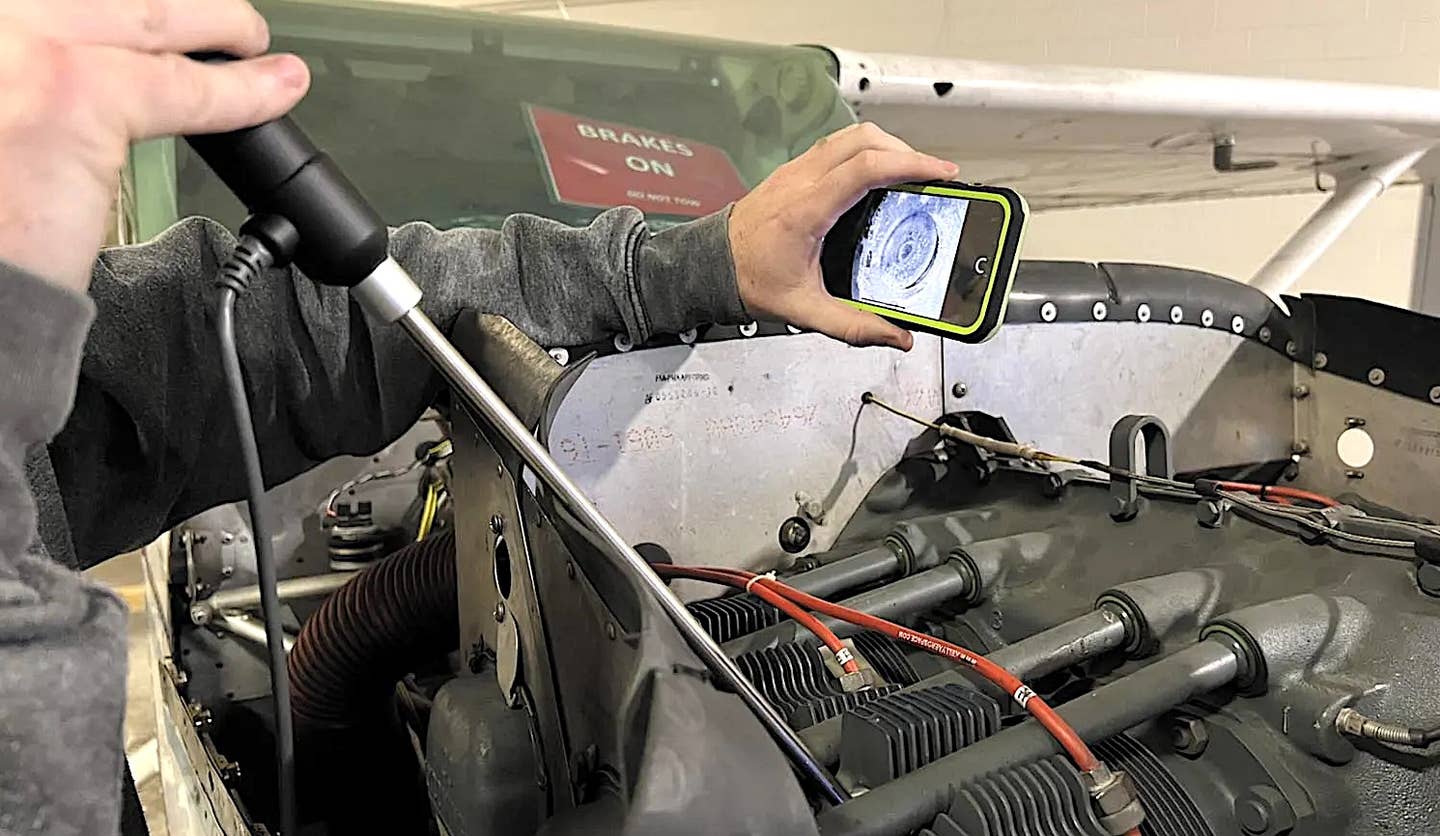Jim Slade
Jim Slade covered the space program from Alan Shepard’s launch in 1961 through his retirement last year. His 40 years of reporting took him from the US-USSR race to the moon, through the collapse of the Soviet Union, all the way to the Russians raising money through recreational space travel. Fresh from his appearance at AirVenture Oshkosh ’02, Jim talks with AVweb‘s Joe Godfrey about NASA, news coverage of the space program, and the genius of the Wright Brothers.
 Jim Slade was born December 4,1936, in Morgantown, W.Va. As a kid he washed airplanes for flight time, earning his pilot's certificate 15 minutes at a time. His deep voice and ability to think on his feet pointed him to a career in radio journalism, and during his 40 years in the business he covered the White House for Mutual, and general assignments for Westinghouse, NBC, CNN, and ABC. When the flag dropped on the space race Jim's pilot certificate earned him a front-row seat to cover NASA. Jim found that his familiarity with three-axis airplanes was not much help in covering the space program, so he befriended the astronauts, engineers and scientists who gave him his education, and when ABC's Science Correspondent Jules Bergman died, Jim filled those distinguished shoes. Jim was the first journalist ashore at the U.S. rescue at Grenada, and was a finalist for NASA's now-abandoned Journalist-In-Space program.
Jim Slade was born December 4,1936, in Morgantown, W.Va. As a kid he washed airplanes for flight time, earning his pilot's certificate 15 minutes at a time. His deep voice and ability to think on his feet pointed him to a career in radio journalism, and during his 40 years in the business he covered the White House for Mutual, and general assignments for Westinghouse, NBC, CNN, and ABC. When the flag dropped on the space race Jim's pilot certificate earned him a front-row seat to cover NASA. Jim found that his familiarity with three-axis airplanes was not much help in covering the space program, so he befriended the astronauts, engineers and scientists who gave him his education, and when ABC's Science Correspondent Jules Bergman died, Jim filled those distinguished shoes. Jim was the first journalist ashore at the U.S. rescue at Grenada, and was a finalist for NASA's now-abandoned Journalist-In-Space program.
Jim loves vintage airplanes and his website -- Jim Slade's Air Lines -- features pictures and articles of his favorites. He has always been a fan of the Wright Brothers and the ultimate vintage airplane, the 1903 Flyer. Jim's work has earned awards from the Ohio State University, the National Space Club, and the Journal of Aviation and Space Writing, and his name ison the wall of the Kennedy Space Center as a "Chronicler of the SpaceProgram." Now that Jim has put two sons through graduate school, he plansto refresh his pilot training and start flying again. Meanwhile, he's writingfor his website and speaking around the country on the Wright Brothers, aircraftdesign, and the space program then and now. Jim just returned from Oshkosh,where he entertained the Monday night crowd at the Theatre in the Woods with hisunique perspective. Jim books his appearances through the AviationSpeakers Bureau.
Tell us about growing up.
I was born in Morgantown, which is a university town, and when I was fairly young we moved to a rural area outside of town. That was very fortunate because when I was 11 years old I started to hang around Morgantown Airport and got a job washing airplanes for 15 minutes of flying time per airplane. It takes a long time to get any hours that way -- but at that age who cares? -- and airplanes have been a major part of my life ever since. As a matter of fact, they were the root of my career.
Was there aviation in your family?
No, I was the black sheep. I was the first one. We all had an interest in it but I was the first one to do anything with it. I saw my first airplane when I was about four years old. It was a J-3 Cub upside down in a hayfield on a hilltop near our house, and I could not understand why my father wouldn't just simply tie a string to the tail wheel and we could drag it home so I could play with it.
Like a puppy?
Right. Obviously the people who put it there had no further interest in it as far as I could tell. But they did get it out of there, and it lived to fly another day.
Did you know when you started washing airplanes and flying that that'swhere you were headed?
It was kind of a mixed bag, since I was always interested in being a radio announcer. Airplanes just looked like a wonderful thing to eat, sleep, and breathe in your spare time, and that's pretty much the way it worked up. As I went along I found that I could start writing about them on the radio and on television and people would listen, and having a specialized knowledge has always been a very good thing for me. When the space program began, I was working for the Westinghouse Broadcasting Company -- a very large outfit which was absorbed by CBS.
 |
When I started working there, I was the only person in the organization that knew much about airplanes -- so wasn't I the logical person to send to cover the space program? It turns out that the space program and spacecraft had very little to do with airplanes. We stuck our heads in and said, "Where are the rudder pedals?" and there were none -- but we didn't tell our bosses that -- so they kept sending us all back. Pretty soon after we'd seen six or seven launches we began to realize that the audience needed to know not only how you fly a spacecraft, but why you fly a spacecraft, and that's when a lot of science writers were born.
There were aviation writers, of course, the '30s and early '40s, but writing about space was something entirely different and it required an awful lot of scholarship -- which is shorthand for "keep your mouth shut and listen" -- and we were provided remarkable access not only to the astronauts but, more importantly, the engineers making all of it work. So the education came along with the job.
Over what time period were you there?
I started with Alan Shepard and I retired from covering space flight last August. I think I saw the most important part in terms of getting it started. I didn't get to see the Wright Brothers but, I got to see the beginning of the space program, which will be with humans as long as we're on this planet.
What are some moments that stand out for you?
The initial flights were so exciting because nobody knew -- literally -- what the outcome might be. It was all theory. It was sending test pilots out there to prove the theories, and the idea of putting a human being on top of a rocket and punching him into the sky was extremely exciting. We covered the early flights live from beginning to end -- and one of the Gemini flights went as long as 14 days.
It was interesting to be able to stand back and see the woods as well as the trees because while the Mercury and the Gemini programs were in progress, Apollo was taking shape and the structure was being built. It was interesting to see how the things they were doing in Mercury and Gemini would immediately be fed over to Apollo to make that thing grow properly. By the time Gemini was finished, Apollo's structure was pretty well assured. It was a matter of sending it out and making sure that it would fly out to the moon and back. That was when Apollo 8 took place, the one that flew around the moon at Christmastime when the astronauts read from Genesis.
 |
I take a little bit different view of some of this than most people, but it's only because I've been so close to it. I am more attuned to the engineers than to the astronauts. Without trying to cast aspersions or to downgrade anybody's role -- because everybody's roles were important -- but in the later years of the program astronauts became interchangeable parts. It was the engineering that built a superb machine like the shuttle. That fascinated me most because here was the repeat item -- the standard item of the program. Here was a launch vehicle, a space station, and an airplane all combined in the same structure. The geometry is amazing -- the fact that it doesn't fly apart in 360 different directions at once is just amazing to me -- and the fact that it does hold up and comes back for repeated use -- like an airliner -- is a major and fundamental step forward in anything we want to do in the future.
And you finally found a spacecraft with rudder pedals.
The shuttle's rudder pedals are electric switches that signal the computers that actually make the rudder movements, but it does have rudder pedals. As they did when they insisted the Mercury spacecraft have a window, the astronauts insisted the shuttle have rudders. Engineers in Houston still grumble about it because they could have saved weight by coupling everything through the stick. But you know astronauts.
At some speeches, I'll say to the audience, "How many here can identify four working astronauts for me?" And they may mention John Glenn -- who is not a working astronaut. They may mention Neil Armstrong, but it's very unlikely they're going to come up with any of the current roster. Then I say, "Okay, name me the four space shuttles," and they can do it, and that pretty much tells you what the fascination is. Because these guys do a flight and they're down for three or four years, but the space shuttle is always back there ready to rotate in on the next one.
Would you go for a ride if they asked you?
In an instant! I would walk out there on my hands and knees to get in that thing. I was named by NASA and the astronauts some years ago as one of the original chroniclers of the space program, and that was very nice. They put my name up on the wall at the Kennedy Space Center, and I guess that's some kind of immortality, at least until they tear down the building and build something new. That was fun.
Who were your fellow chroniclers?
Jules Bergman was at ABC, and when he died I took his place. Jay Barbree and Roy Neal were at NBC. Howard Benedict of Associated Press and other general-assignment people rotated in and out. So there are some of us who did it as a career and some of them who did it as an assignment on an occasional basis. Frankly, the subject is so overwhelming that I always felt sorry for the guys who did it on a general-assignment basis because it must have been very frightening. It's terrifying now, the complexity and the things that you need to absorb, just the concepts that you need to absorb to come into it fresh at this point.
Was NASA helpful or did you learn it on your own?
 |
You did it on a day-to-day basis. I spent an awful lot of time in Houston, spent an awful lot of time in Florida, and in the early days, when Apollo was in its formative stages, I spent a lot of time on the west coast. Actually went to school -- short courses -- at Grumman and Benedict on the lunar module. I'm glad I did that because when Neil Armstrong landed on the moon I was listening to Buzz Aldrin reading out the instruments, and I knew he was not landing where he was supposed to be -- but was instead hunting for another place to land. I could tell that from the numbers because I took the course.
When Apollo 13 blew up, I said on the air that the only thing they had now to get them back was the lunar module, and my boss called and said, "You can't say that on the air." I said, "Yes, I can because I know that for a fact. That's what they've got," and about that time they were opening up the door and going in. Things like that stand out as the way we prepared ourselves in those days. You really had to go to school because it was such a new subject, and you needed to know what had happened in the past -- like the early rocket flights of Chuck Yeager and Scott Crossfield with the X-15 -- to fit it all together and make sense of it.
Is there one person that you felt a special connection with?
Chris Kraft. He was the original flight director, designed Mission Control, and designed an awful lot of the way we fly spacecraft today. If you've got a laptop computer you can thank Chris Kraft -- because until he went to IBM and demanded something he could put aboard a spacecraft the computers that were flying spacecraft filled up rooms. They couldn't believe what he was demanding but they went and did it. He's always been a favorite person of mine and somebody I could talk to and that I liked immensely. He's a crusty old devil, and I guess we suited each other. I'm sure there are many, but Kraft's the one that leaps to mind when you ask that question.
What's NASA's biggest problem right now?
Lack of funding and lack of direction. That comes directly from the Congress and the White House. Dan Goldin had the very best of intentions to do what needed to be done in terms of stirring the public's imagination -- and stirring the public's imagination means going someplace -- it doesn't mean flying in orbit. To the ordinary person flying in orbit has been done to death and it's boring, even though they are accomplishing solid things.
The space station is fairly boring to watch because development is so slow and there's no way to track what little research they do on it after the fact. Some of the stuff is proprietary so you never do hear how it comes out. A lot of it takes so long that by the time some results have been published in some forum or magazine years later, it no longer amounts to a story unless it's just absolutely astounding, so the project in a way is self-defeating.
I've always thought that if they really wanted to excite the public again they'll have to go back to the moon and establish their base there, because if you could live and survive on the moon, Mars will be a relative piece of cake -- except for that long trip -- because you'll have built equipment that can survive in some ways in a harsher environment than on Mars.
The Vietnam War had a lot to do with ending Apollo early, and it's a tragedy in my mind to have invested that much effort and money and time in something and then not capitalize on it, and that's exactly what's happened -- that's basically a political decision. NASA has not come up with a good, saleable plan that would excite the Congress into saying, "Yeah, this is something we can support and we should be doing." They haven't found a way to do that, and their opportunities are very limited, and outside of war, space is kind of on a plateau.
Who was the best NASA Administrator during your tenure?
My vote would be for Jim Webb, the original NASA administrator. Paired with Werner von Braun, he was hard to beat before Congress. Additionally, Webb had great clout with the White House -- JFK was his man. It took that kind of influence and dogged determination to get us to the moon.
Which network and which reporters are doing a good job covering the spaceprogram?
Vic Ratner at ABC knows what he's doing. CBS probably has the two best guys right now who are working -- Bill Harwood on television and Peter King on radio. Jay Barbree is the last of the original group, and he's still covering it on a per-flight basis for NBC, but he's not doing day-to-day coverage.
I don't think the subject is taken seriously enough. It was one of the reasons that I was glad to quit doing so much television because, frankly, television is peopled with people who say "Been there, done that," and as a journalist you cannot do a serious job on a subject that way. You have to do it day in and day out and day in and day out. You have to have the support of your organization, and nobody that I know in the business is getting that kind of support -- except when there's a flurry of interest when a shuttle flies -- and that interest is basically: "Is it going to blow up or not?" Once it flies and lands, then it's over and forgotten until the next time. That is no way to really do an honest job of reporting.
On the other hand, that's the way it ought to be, isn't it? We don't go out and cover every airline takeoff and landing, either, so something has to be regularized. I hate the word "routine" because no space flight is ever routine -- they're all different and they're all volatile and they're all quixotic -- and you really have to pay attention to them every minute.
Where were you on the day the Challenger exploded?
I was there -- numb for two or three days. That was a tremendous loss and I knew exactly what we were in for -- a year and a half of introspection and study. Thank God they put good people on the investigating panel to give it credibility. Neil Armstrong, Sally Ride and Dr. Feynman were on that panel.
If NASA had not been pushed politically to get that thing flying on a reasonable schedule, it might not have happened -- because they wouldn't have pushed themselves to fly when they were near the red lines on temperature. They flew it when it was freezing. They knew they shouldn't do that, and what happened is what happened.
Tell us something we don't know about the Wright Brothers.
 |
The Wrights were amazing fellows, for tenacity and a certain brilliance. What the Wrights did in their own laboratories, frankly, overturned the work of lettered people around the world, Ph.D.s, who had theories that simply were absolutely wrong. When it came to the propeller, the Wrights thought, "Well, we'll leave the propeller for last because we know about ships' propellers. Everything ought to be okay." When they got down to doing the work, all the marine tables on propellers turned out to be incorrect to the point that most propellers in the world at that time were only 35% or less as efficient as they could be with proper engineering. So these two guys with barely high school educations -- and one of them didn't bother to go get his diploma -- flummoxed all of the learned heads of the world that had been pronouncing their theories on flight.
What the Wrights did, basically, was build a system of control, which nobody else in the business was doing. They did three-axis control, which you and I use today when we fly. Most everybody else who even tried to use control were doing one- or two-axis, with most of the steering being done by rudder, as in a boat. The Wrights said, "You know, to do an efficient turn you've got to not only bank the airplane, you've got to use the rudder to stabilize this thing, you've also got to be able to control pitch." They also discovered the fact that the propeller is a wing -- a rotating wing -- and they did this by building their own wind tunnel to do it. They did stuff that is still common practice today, and the wing they designed is still a viable wing.
The 1903 Wright Flyer was the world's first ultralight. They did their own mechanics on the engine. The propellers, although operated by one engine, are counter-rotating to take out torque. So these guys were pretty amazing, and nobody would take them seriously because -- "What do two jerks from Dayton know?" -- and it turned out that they knew quite a lot. The problem for them was to get the world to acknowledge the fact that they had indeed done something that all the learned heads couldn't do, and at the same time while getting the world to acknowledge that they had to protect their patents.
I think it probably drove Wilbur Wright to his grave, although, of course, he died of disease in 1912, but he was an exhausted man, and he was the one that made all the presentations and did the writing. Orville was not a writer, and he spent most of the rest of this life trying to find somebody who would tell the story properly.
Where do you stand on the who flew first issue -- Whitehead or the WrightBrothers?
I'll go with the Wright Brothers for the very simple reason of three-axis control. They started at one point, lifted off under their own power, flew under control, and landed at a point the same altitude as the point of departure. That defines a flight. And they did it, so I think that the Wright Brothers should be left to claim the honor.
Are you interested in recreational space travel?
If you believe that history repeats itself, then you've got to say that space is about in the place where aviation was prior to the development of the Ford Tri-motor. In other words, you've still got an awful lot of people playing around, a lot of experimental work being done, but you don't have enough technology assembled yet to make that either affordable or practical.
Right now if you're going to go into space you're going to have to have a very, very good reason for doing it, and going as a tourist is not a practical matter for most of us, albeit the Russians have done that. I'm not so sure I approve of it because, frankly, you're taking up oxygen and space that could be better used for more scientific reasons, and that's all I'll say about people with $20 million, but, I don't think we're there yet. I think riding a ballistic arc into space and getting three or four minutes of weightlessness is probably okay if you can afford to do it and you can afford to put up the money for people to use those resources to get you there, but, when it's over you won't have proved much that you couldn't prove on a roller coaster.
Are you still flying?
I'm not active and haven't been since faced with the need to put two boys through Masters degrees, and I'm hoping to resume again sometime in the near future. It has been so long I think I'll probably go back to school and take a short course, because I just wouldn't I feel safe if I didn't. I can still go through the mechanics of piloting an airplane, but a lot of things have changed since I flew actively, and I think I would rather go back to school and catch up.
Have you got your eye on a particular airplane?
The Beech Staggerwing always been a favorite of mine -- when it cranks up with that big old deep-throated cough and rumble and it looks so great leaving the ground. It was the Lear Jet of the '30s. I've always thought the Bonanza was a wonderful machine, too, which puts me in a minority with some people. I've liked some of the modern Cessnas, mainly because of their comfort and ease of use -- kind of the Chevrolet of the aviation business. I'd be happy with a Champ to bang around in. I'd probably find something to like in almost any airplane you mention to me, and at my stage of life, the big thrill is just flying the airplane, and I'd be very happy with that.


